Ditapis dengan
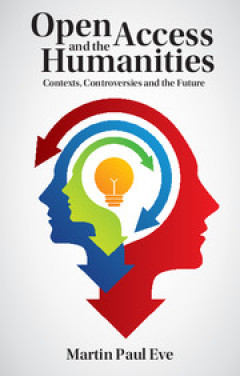
Open access and the humanities :contexts, controversies and the future
If you work in a university, you are almost certain to have heard the term 'open access' in the past couple of years. You may also have heard either that it is the utopian answer to all the problems of research dissemination or perhaps that it marks the beginning of an apocalyptic new era of 'pay-to-say' publishing. In this book, Martin Paul Eve sets out the histories, contexts and controversie…
- Edisi
- -
- ISBN/ISSN
- 9781107484016
- Deskripsi Fisik
- xv, 209p. : ill.
- Judul Seri
- -
- No. Panggil
- 001.30285 EVE o

Humanities Research Centre :a history of the first 30 years of the HRC at the…
Humanities; Research; History
- Edisi
- -
- ISBN/ISSN
- 9789751229830
- Deskripsi Fisik
- xiii, 400p. : ill.
- Judul Seri
- -
- No. Panggil
- 001.307119471 BAR h
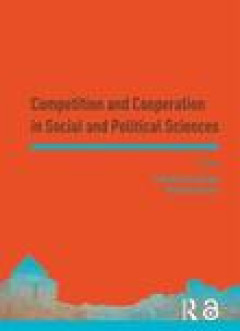
Competition and Cooperation in Social and Political Sciences Proceedings of t…
The book contains essays on current issues in Social and Political Sciences, such as the issues of governance and social order; social development and community development; global challenges and inequality; civil society and social movement; IT-based community and social transformation; poverty alleviation and corporate social responsibility; and gender issues. Asia and the Pacific are the par…
- Edisi
- -
- ISBN/ISSN
- 9781315213620
- Deskripsi Fisik
- xii, 392p.: ill.
- Judul Seri
- -
- No. Panggil
- 300 COM c
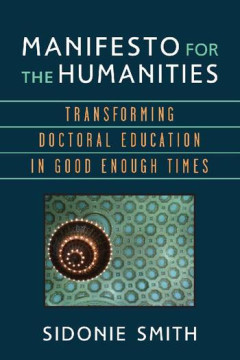
Manifesto for the humanities :transforming doctoral education in good enough …
After a remarkable career in higher education, Sidonie Smith offers Manifesto for the Humanities as a reflective contribution to the current academic conversation over the place of the Humanities in the 21st century. Her focus is on doctoral education and opportunities she sees for its reform. Grounding this manifesto in background factors contributing to current “crises” in the humanities,…
- Edisi
- -
- ISBN/ISSN
- 9780472073047
- Deskripsi Fisik
- xi, 225p. : ill.
- Judul Seri
- -
- No. Panggil
- 378.2 SMI m
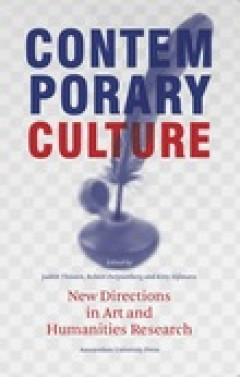
Contemporary culture :new directions in arts and humanities research
Are the humanities still relevant in the twenty-first century? In the context of pervasive economic liberalism and shrinking budgets due to a deep and prolonged recession, the exigency of humanities research for society is increasingly put into question. This volume claims that the humanities do indeed matter by offering empirically-grounded critical reflections on contemporary cultural practic…
- Edisi
- -
- ISBN/ISSN
- 9789089644749
- Deskripsi Fisik
- 250 p.
- Judul Seri
- -
- No. Panggil
- 701.03 ZIJ c
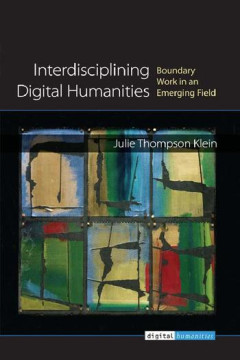
Interdisciplining digital humanities :boundary work in an emerging field
The first book to test the claim that the emerging field of Digital Humanities is interdisciplinary and also examines the boundary work of establishing and sustaining a new field of study
- Edisi
- -
- ISBN/ISSN
- 9780472072545
- Deskripsi Fisik
- xiii, 201p. : ill.
- Judul Seri
- -
- No. Panggil
- 001.30285 KLE i

Advancing energy policy :lessons on the integration of social sciences and hu…
This open access book advocates for the Social Sciences and Humanities to be more involved in energy policymaking. It forms part of the European platform for energy-related Social Sciences and Humanities’ activities, and works on the premise that crossing disciplines is essential. All of its contributions are highly interdisciplinary, with each chapter grounded in at least three different Soc…
- Edisi
- -
- ISBN/ISSN
- 9783319990972
- Deskripsi Fisik
- xxvii, 193p. : ill.
- Judul Seri
- -
- No. Panggil
- 333.79 ADV a

New publication cultures in the humanities :exploring the paradigm shift
The changes we have seen in recent years in the scholarly publishing world - including the growth of digital publishing and changes to the role and strategies of publishers and libraries alike - represent the most dramatic paradigm shift in scholarly communications in centuries. This volume brings together leading scholars from across the humanities to explore that transformation and consider t…
- Edisi
- -
- ISBN/ISSN
- 9789089645647
- Deskripsi Fisik
- 211 p.
- Judul Seri
- -
- No. Panggil
- 070.5797 NEW n

Research assessment in the humanities :towards criteria and procedures
This book analyses and discusses the recent developments for assessing research quality in the humanities and related fields in the social sciences. Research assessments in the humanities are highly controversial and the evaluation of humanities research is delicate. While citation-based research performance indicators are widely used in the natural and life sciences, quantitative measures for …
- Edisi
- -
- ISBN/ISSN
- 9783319290164
- Deskripsi Fisik
- xviii, 247p. : ill.
- Judul Seri
- -
- No. Panggil
- 371.26 RES r
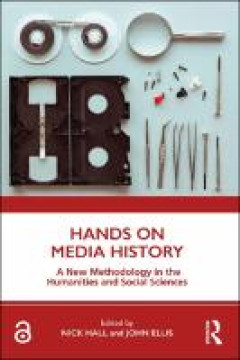
Hands on media history:a new methodology in the humanities and social sciences
"Hands on Media History explores the whole range of hands on media history techniques for the first time, offering both practical guides and general perspectives. It covers both analogue and digital media; film, television, video, gaming, photography and recorded sound. Understanding media means understanding the technologies involved. The hands on history approach can open our minds to new per…
- Edisi
- -
- ISBN/ISSN
- 9781351247412
- Deskripsi Fisik
- xvii, 240p.: ill.
- Judul Seri
- -
- No. Panggil
- 302.23 HAN h

The challenge of chance :a multidisciplinary approach from science and the hu…
This book presents a multidisciplinary perspective on chance, with contributions from distinguished researchers in the areas of biology, cognitive neuroscience, economics, genetics, general history, law, linguistics, logic, mathematical physics, statistics, theology and philosophy. The individual chapters are bound together by a general introduction followed by an opening chapter that surveys 2…
- Edisi
- -
- ISBN/ISSN
- 9783319263007
- Deskripsi Fisik
- vii, 276p. : ill.
- Judul Seri
- -
- No. Panggil
- 123.3 KLA t

Information and knowledge organisation in digital humanities:global perspectives
Information and Knowledge Organisation explores the role of knowledge organisation in the digital humanities. By focusing on how information is described, represented and organised in both research and practice, this work furthers the transdisciplinary nature of digital humanities. Including contributions from Asia, Australia, Europe, North America and the Middle East, the volume explores the p…
- Edisi
- -
- ISBN/ISSN
- 9781003131816
- Deskripsi Fisik
- xxiii, 290 p. : ill.
- Judul Seri
- -
- No. Panggil
- 658.038 GOL i

Shaping the digital dissertation :knowledge production in the arts and humani…
"Digital dissertations have been a part of academic research for years now, yet there are still many questions surrounding their processes. Are interactive dissertations significantly different from their paper-based counterparts? What are the effects of digital projects on doctoral education? How does one choose and defend a digital dissertation? This book explores the wider implications of di…
- Edisi
- -
- ISBN/ISSN
- 9781800641006
- Deskripsi Fisik
- vi, 290 p.
- Judul Seri
- -
- No. Panggil
- 370 KUH s

Movement of knowledge :medical humanities perspectives on medicine, science, …
Medical knowledge is always in motion. It moves from the lab to the office, from a press release to a patient, from an academic journal to a civil servant’s desk and then on to a policymaker. Knowledge is deconstructed, reconstructed, and transformed as it moves. The dynamic, ever-evolving nature of medical knowledge has given rise to different concepts to explain it: diffusion, translation, …
- Edisi
- -
- ISBN/ISSN
- 9789188909367
- Deskripsi Fisik
- 261 p.
- Judul Seri
- -
- No. Panggil
- 610.1 HAN m
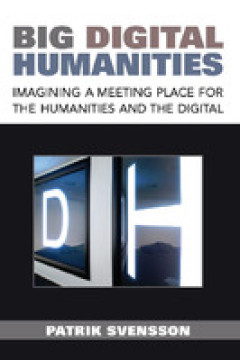
Big Digital Humanities:Imagining a Meeting Place For The Humanities And The D…
Big Digital Humanities has its origins in a series of seminal articles Patrik Svensson published in the Digital Humanities Quarterly between 2009 and 2012. As these articles were coming out, enthusiasm around Digital Humanities was acquiring a great deal of momentum and significant disagreement about what did or didn’t “count” as Digital Humanities work. Svensson’s articles provided a w…
- Edisi
- -
- ISBN/ISSN
- 9780472053063
- Deskripsi Fisik
- -
- Judul Seri
- -
- No. Panggil
- -
 Karya Umum
Karya Umum  Filsafat
Filsafat  Agama
Agama  Ilmu-ilmu Sosial
Ilmu-ilmu Sosial  Bahasa
Bahasa  Ilmu-ilmu Murni
Ilmu-ilmu Murni  Ilmu-ilmu Terapan
Ilmu-ilmu Terapan  Kesenian, Hiburan, dan Olahraga
Kesenian, Hiburan, dan Olahraga  Kesusastraan
Kesusastraan  Geografi dan Sejarah
Geografi dan Sejarah